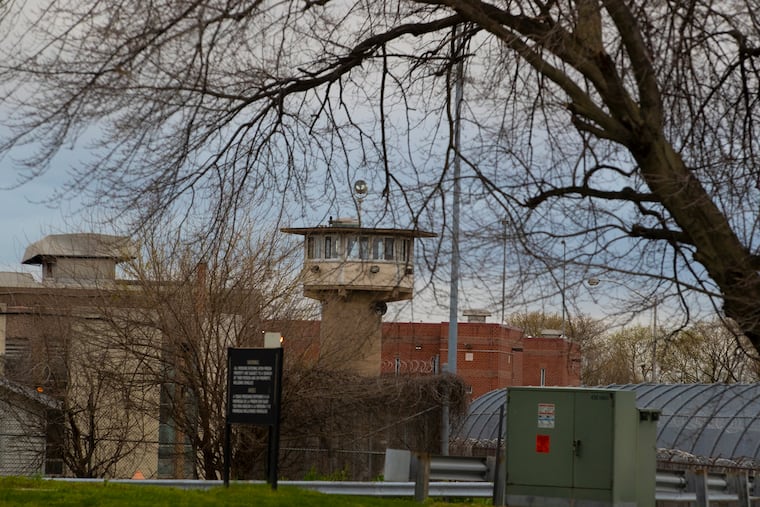An ex-Philly prison guard accused of smuggling phones and drugs to inmates now faces charges of pandemic relief fund fraud
Haneef Lawton, who lost his job after he was charged with accepting bribes, is now accused of obtaining $10,000 with false claims he ran a struggling farm business from his Philadelphia home.

A former Philadelphia corrections officer accused earlier this year of smuggling contraband to inmates amid the coronavirus lockdown of the city jails is facing new charges alleging he defrauded a pandemic relief program designed to help struggling small businesses.
Federal prosecutors say Haneef Lawton, 33, told the U.S. Small Business Administration he ran a farm business from his East Mount Airy home that employed more than 50 people and had annual sales of roughly $145,000. His application for a grant under the SBA’s Economic Injury Disaster Loan program netted him $10,000 in federal assistance in June 2020.
Lawton allegedly submitted the grant with the assistance of another individual, who prosecutors have not publicly identified, months before his purported involvement in the jail smuggling scheme, according to court filings in both cases.
In that case, Lawton — a 13-year veteran of the Department of Corrections who had been assigned to the Philadelphia Industrial Correctional Center on State Road — was accused of helping to sneak nearly $70,000 worth of cell phones and narcotics into the facility between September 2020 and April of this year.
Investigators have accused Lawton of accepting a total of $11,500 in bribes from an inmate who organized the contraband pipeline and his girlfriend who delivered the illicit cell phones and doses of Suboxone — a drug used to treat heroin withdrawal that can also be abused as an opioid itself.
When the Department of Corrections confronted him with the accusations in May, Lawton opted to resign his post and give up his $51,000 annual salary, a spokesperson for the city department said. He was charged days later.
Both of Lawton’s codefendants in that case have pleaded guilty to conspiracy to commit bribery and drug offenses, among other charges. Lawton is scheduled to also enter a guilty plea in that case next week, according to federal court dockets.
The pandemic fraud charges against him were filed Monday by way of a criminal information instead of an indictment — typically a sign that a defendant has already agreed to plead guilty. He could face up to an additional 10 years in prison should he do so.
Since the onset of the coronavirus, the federal government has approved $2.2 trillion dollars in economic stimulus payments to individuals and business owners negatively impacted by the pandemic.
But lawmakers have repeatedly raised concerns about fraud in those programs — particularly ones run by the SBA. Last month, the agency’s inspector general concluded in a report that it had distributed more than $3.1 billion in loans and $550 million in grants to potentially ineligible recipients between March of November of last year.
The study largely blamed a lack of scrutiny in vetting applicants for assistance.
The court filings in Lawton’s case point to several red flags that might have raised concerns.
For instance, aside from claiming he ran a farm business from his northwest Philadelphia home, prosecutors say Lawton put his personal Social Security number on a section of his application that requested a federal business tax ID number and asked for the grant money to be deposited into a personal bank account.
He received the $10,000 he’d requested a day after submitting the application, according to the filings.
Lawton’s lawyer, Andrew Montroy, did not immediately return calls for comment Tuesday.